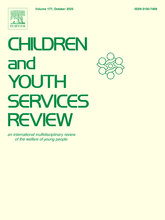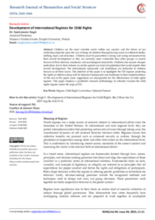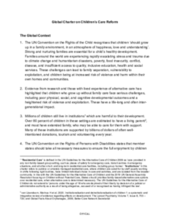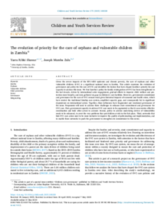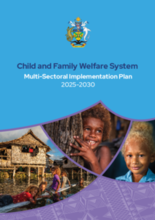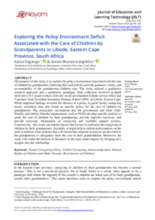Displaying 21 - 30 of 1797
This special issue of the Children and Youth Services Review concerns the governance of children's care systems in low and middle-income countries, with a focus on Cambodia, Uganda and Zambia. The special issue focuses on the political and bureaucratic factors that shape priority for and the effectiveness of national children's care systems in low and middle-income countries.
This paper critically examines the international child rights regime under the auspices of the United Nations, highlighting its historical foundations, key challenges, and the role of global institutions in safeguarding children’s rights. Employing a qualitative research methodology, the paper also offers recommendations to strengthen the effectiveness of child rights protections worldwide.
In January 2025, U.K. Foreign Secretary David Lammy launched an initiative to transform the lives of all children globally, so that they are cared for in families and free of violence, exploitation and other harmful practices.
The Global Charter on Children’s Care Reform is a call for world leaders to act together to: uphold the UN Convention on the Rights of the Child and the UN Convention on the Rights of Persons with Disabilities; invest in families, children, care leavers, and inclusive services; and end violence against children and harmful practices like orphanage tourism.
In January 2025, the Foreign Secretary of the United Kingdom launched a bold and visionary initiative: to transform the lives of children globally so that all children are cared for in families and free of violence, exploitation and other harmful practices.
Through this new campaign governments, civil society, faith groups, and individuals with lived experience of care systems are calling on world leaders to join forces in a global movement that harnesses decades of international progress to ensure all children are growing up in a safe, nurturing and loving family environment. This overview calls on government leaders to join this movement.
Given the severe impacts of the HIV/AIDS epidemic and chronic poverty, the care of orphans and other vulnerable children (OVC) is a significant national issue in Zambia. This article examines the evolution of governance and policy for the care of OVC and identifies the factors that have shaped Zambia’s priority for and capacity to address this issue.
The second WHO and UNICEF-facilitated Digital Dialogue, following the 2024 Global Ministerial Conference, convened over 400 participants to explore how care reform can help prevent violence against children. Co-hosted by Better Care Network, Lumos, UNICEF, and WHO, the session highlighted country experiences, regional efforts, and the urgent need for integrated, family-based solutions to end institutional violence and protect every child.
This study examines Algeria’s use of kafala as a legally recognized alternative to adoption, highlighting its role in protecting the identity and citizenship rights of children of unknown parentage. While kafala aligns with Islamic principles and offers a protective framework, legal gaps, administrative barriers, and social stigma persist, underscoring the need for reforms to ensure children’s full legal identity and social inclusion.
The Solomon Island's Child and Family Welfare Act 2017 signalled a strong commitment from the government to strengthen national efforts to prevent and respond to violence, abuse, neglect and exploitation of children. This Multi-Sectoral Implementation Plan 2025–2030 outline's the government's plan to improve services to strengthen family and community caring practices and to ensure a timely and appropriate response to all children in need of care and protection.
This study explores the policy environment for children cared for by grandparents in Libode, Eastern Cape, South Africa, finding no specific policies to guide or support such caregiving. It recommends developing dedicated policies, resources, and information to better equip grandparents, while contributing new insights to scholarship and informing policymakers.
The Adoptions and Safe Families Act (ASFA) of 1997, combined with rising incarceration rates, has increased the risk of parental rights termination for incarcerated parents, often leading to foster care placements for their children. A review of state-level policies found most lacked coordination between the child welfare and criminal legal systems, highlighting the need for cross-system collaboration and inclusion of parents with lived experience in legislative efforts.

